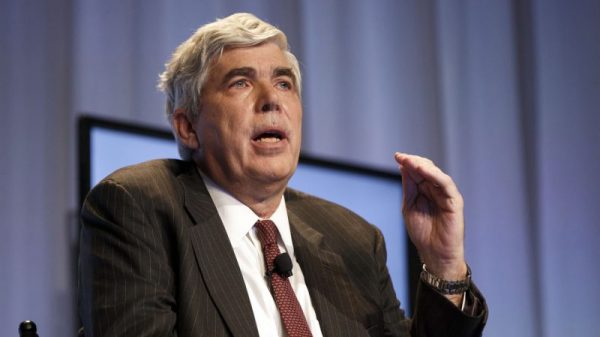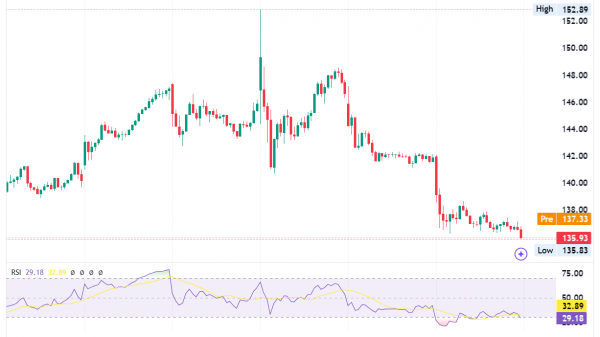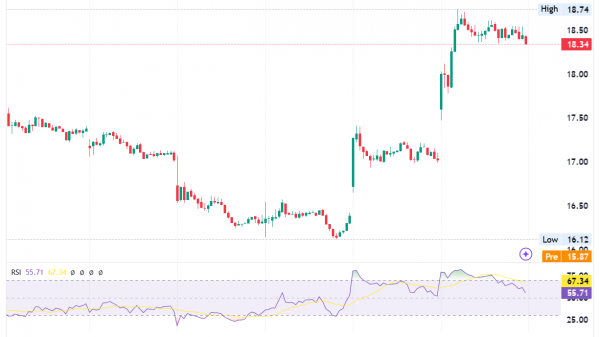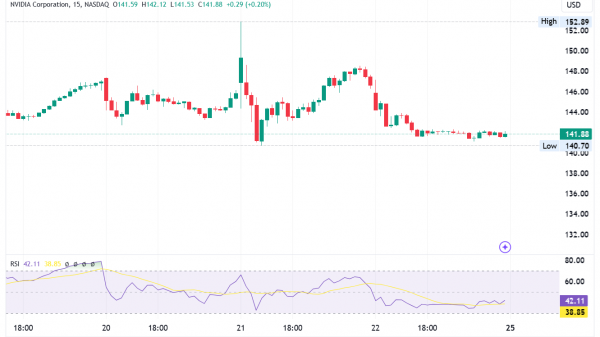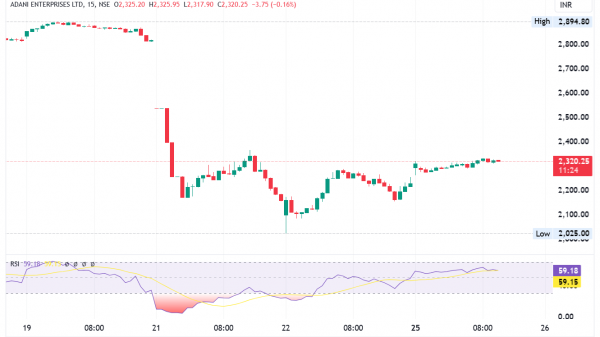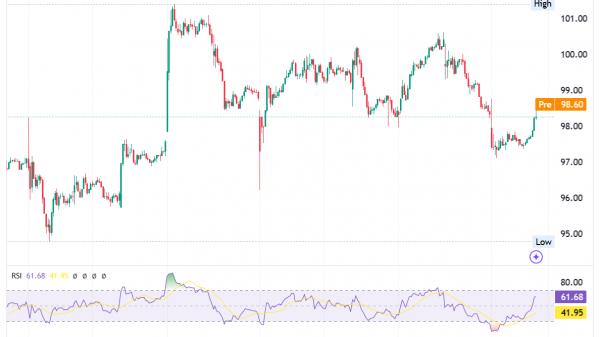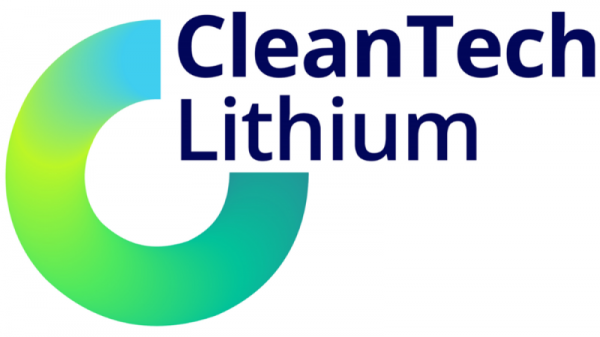As the market for digital assets continues to grow, investors are looking for new ways to gain exposure to crypto. Spot Ether exchange-traded funds (ETFs) could be an easy way for crypto enthusiasts to benefit from the price movements of Ether, the largest cryptocurrency by market capitalization after Bitcoin.
On January 12, days after the historic approval of spot Bitcoin ETFs by the US Securities and Exchange Commission (SEC), Blackrock (NYSE:BLK) CEO Larry Fink said during an interview with CNBC that he saw “value” in offering spot ETFs for Ethereum, the number two cryptocurrency by market capitalization. “These are just stepping stones towards tokenization,” he said at the time.
After months of speculation, the US Securities and Exchange Commission (SEC) announced on May 23 that it approved the launch of eight spot Ether ETFs on an accelerated basis, marking another major milestone in the cryptocurrency industry.
What is Ethereum?
Ethereum is a decentralized open-source blockchain platform. While Bitcoin legitimized the concept of peer-to-peer (P2P) digital money, Ethereum expanded on the idea. The platform enables software developers to create decentralized applications that run on the blockchain — called dApps — and smart contracts, which are self-executing agreements with the terms directly written into code. The network also supports a digital currency called Ether (ETH), which is used to pay for transaction fees and computational services on the Ethereum network.
The Ethereum Virtual Machine is a runtime environment that uses smart contracts for various applications on the Ethereum blockchain. Some popular use cases for smart contracts on Ethereum, as well as other platforms such as Solana and Cardano, include decentralized finance, non-fungible tokens (NFTs), gaming, decentralized autonomous organizations, digital wallets and gambling.
Ethereum has undergone several changes to its network since its inception, each aimed at improving scalability, security and functionality. The Merge, the Shanghai Upgrade and the Dencun Upgrade, which took place in September 2022, March 2023 and March 2024 respectively, have all made significant changes to its operation.
The Merge marked Ethereum’s transition from a proof-of-work (PoW) consensus mechanism, which is how Bitcoin operates, to a proof-of-stake (PoS) mechanism, which requires validators to put up some of their own Ether as a stake in the network’s consensus process. It involved merging the Ethereum mainnet with the PoS based Beacon Chain, a separate blockchain in which users can deposit the 32 Ether required to become validators.
The Shanghai Upgrade in 2023 enabled the withdrawal of staked Ether from the Beacon Chain, which wasn’t initially possible following the Merge. Several Ethereum Improvement Proposals were included in this upgrade, laying the groundwork for future progress and resulting in enhanced network functionality and performance.
The most recent upgrade, Dencun, introduced a new process to lower energy consumption and fees for Layer 2 networks operating on the Ethereum blockchain. In fact, transaction fees on leading Layer 2 networks dropping significantly in the aftermath of the Dencun upgrade may have laid the groundwork for increased investor interest in Ethereum-based financial products.
What is an Ethereum ETF?
An ETF is a type of investment fund that holds a collection of underlying assets and trades like an individual stock on an exchange, giving investors exposure to the performance of a particular market, commodity or asset class without requiring them to invest directly in it.
In this case, Ethereum ETFs track its cryptocurrency Ether’s financial performance and allow investors to use traditional, regulated stock exchanges to benefit from Ether’s price movements. This means they can avoid complicated technical processes like setting up and managing cryptocurrency wallets, navigating decentralized exchanges or understanding underlying blockchain technology.
Cryptocurrency ETFs can also offer a more cost-effective way to invest compared to purchasing tokens directly. This makes them an attractive option for risk-averse investors who are interested in the crypto market but have concerns about volatility and security.
Spot ETFs and futures ETFs are the two distinct types of ETFs that differ primarily in the way investors gain exposure to underlying assets. Spot ETFs hold the underlying assets they aim to track, while futures ETFs do not. Instead, futures ETFs gain exposure by tracking the price of futures contracts, which are financial derivatives that represent an agreement to buy or sell an asset at a predetermined price and date in the future. Futures ETFs tend to carry additional risks, such as price discrepancies between futures and spot markets.
Ethereum futures ETFs have been available since the VanEck Ethereum Strategy ETF, the Bitwise Ethereum Strategy ETF and the ProShares Ether Strategy ETF made their debut on October 2, 2023. Due to the volatile nature of cryptocurrencies, investor sentiment has shown a strong preference for spot ETFs over futures-based ETFs, but spot ETFs for Ethereum have not yet been approved by the SEC.
The debate over Ethereum’s classification
The debate on how to classify cryptocurrencies is what has been at the center of the dispute between the regulatory agency and the crypto sector.
In 2018, William Hinman, who served as the Director of the SEC’s Division of Corporation Finance from 2017 to 2020, classified Bitcoin and Ether as non-securities on the grounds that their decentralized nature, as well as their functional characteristics used for storing value and conducting transactions, didn’t meet the definition. Since then, Gary Gensler, who took over Jay Clayton’s role as SEC chairman in 2020, has argued that cryptocurrencies meet the definition of securities, which would subject them to more stringent regulations.
In contrast, the Commodity Futures Trading Commission has classified crypto as a commodity, which would place it under a different regulatory regime. Many contend that cryptocurrencies don’t neatly fit into existing regulatory categories, a position that Gensler disagrees with.
In an article for Coin Telegraph in January, Lucas Kiely, chief investment officer of Yield App, wrote that the justifications for the SEC’s decade-long fight against a Bitcoin ETF were nothing short of political. With the recent approval of a spot Bitcoin ETF, Kiely asserted that the SEC has now settled the debate over crypto’s classification as a commodity. He contended that there should be no reason to delay the approval of Ethereum ETFs, given the similarities between Bitcoin and Ethereum in terms of their decentralized nature and widespread adoption.
Kiely’s argument raises a question about the consistency of the SEC’s approach to cryptocurrency classifications. If the SEC had provided clear guidance on classifying Bitcoin as a non-security, it would seem logical that this classification could have automatically applied to Ether.
However, the approval of spot Bitcoin ETFs depended on the SEC allowing specific rule exceptions to be made, instead of reclassifying Bitcoin as a security. The rule change was not automatically extended to other cryptocurrencies, and SEC Chairman Gensler indicated that the agency would take a case-by-case approach in evaluating ETF proposals for other cryptocurrencies.
Additionally, there are several differences in the function of the two cryptocurrencies. Bitcoin is primarily seen as a decentralized digital currency, whereas Ether is tied to Ethereum’s blockchain platform, smart contracts and dApps, leading to classification complexity. Ether’s use as a working currency, unlike Bitcoin’s primary function as a store of value, may pose additional challenges.
Which firms applied to offer spot Ethereum ETFs?
Eight institutions submitted applications for spot Ether ETFs to the SEC for approval: BlackRock, VanEck, ARK 21Shares, Grayscale, Fidelity, Invesco and Galaxy Digital through a joint proposal, as well as Franklin Templeton, which is the most recent financial firm to apply, having done so in February.
VanEck was the first institution to file in July 2021, but the SEC has repeatedly delayed deciding on its spot Ether ETF application and others on multiple occasions. Cboe Digital, the cryptocurrency arm of Cboe Global Markets and one of the few US exchanges approved to offer margined Bitcoin and Ether futures, submitted VanEck’s most recent application, along with the proposal on behalf of ARK 21Shares, on September 6, 2023.
Also in September, shortly before also applying for spot ETH ETFs, Grayscale applied to offer futures Ether ETFs, a move some analysts believed was strategic, meant to strongarm the SEC into approving spot Ether ETFs. Grayscale’s subsequent application to convert its Ethereum trust into a spot Ether ETF in October 2023 caused shares to jump 6.15 percent, indicating demand.
SEC regulators announced just days before the original December 26 deadline that they would postpone the decision for VanEck’s spot ETF and Grayscale’s Ethereum Futures ETF applications until May 23, with Grayscale’s being pushed again to June 23, citing the need for further consideration of the complex regulatory issues involved.
Representatives from Coinbase then met with the SEC to present Grayscale’s proposal, hoping to sway the regulators in their favor. During the meeting, Coinbase said it had partnered with the Chicago Mercantile Exchange to closely monitor trading activities for fraud and manipulation and agreed to share information to ensure transparency and regulatory compliance.
The SEC approves spot Ethereum ETFs
In a landmark decision, the SEC approved a rule change that would allow spot Ether ETFs on May 23, the deadline for a decision on the VanEck Ethereum Trust. The SEC also approved the Grayscale Ethereum Trust, the Bitwise Ethereum ETF, the iShares Ethereum Trust, the ARK 21Shares Ethereum ETF, the Invesco Galaxy Ethereum ETF, the Fidelity Ethereum Fund and the Franklin Ethereum ETF.
Early on in 2024, analysts predicted that Ether ETFs would have a “clear path” to approval following the sweeping approval of 11 spot Bitcoin ETFs. At that time, the odds of a spot Ethereum ETF by May were pegged at 70 percent by Bloomberg ETF analyst Eric Balchunas, who later reduced his estimate to 35 percent on March 11.
“All the signs/sources that were making us bullish 2.5mo out for BTC spot are not there this time,” he posted to X, the social media platform formerly known as Twitter.
He wasn’t the only one reigning in expectations. FOX reporter Eleanor Terrett had tweeted on March 10 of one-sided talks between issuers and the SEC coupled with opposition from a group of lawmakers who wanted the SEC to halt crypto ETF approvals. Despite these challenges, some reacted to the 21-day public comment period commenced by the SEC on April 2 with optimism. However, Bloomberg ETF analyst James Seyffart was quick to curb enthusiasm, pointing out that the SEC was merely following standard procedure.
“Every single 19b-4 ETF filing goes through the same process (whether approved or denied). It’s not ‘bullish’ in any capacity for Ethereum ETFs,” he posted on April 3. Regulators remained quiet on the issue, and expectations continued to drop.
Then, on May 20, CoinDesk and Reuters reported that the SEC asked the Nasdaq, CBOE and NYSE to update their 19b-4 filings for the ETH ETF applications “on an accelerated basis.” The price of Ether jumped from US$3,143 to US$3,472 in just over 20 minutes following the news breaking. Eric Balchunas and James Seyffart increased their odds of VanEck’s 19b-4 form being approved — a crucial step in the process of launching a spot Ether ETF — from 25 percent to 75 percent.
On May 21 (Tuesday), Seyffart posted an update: “It’s happening. We have at least 5 of the potential #Ethereum ETF issuers that have submitted their Amended 19b-4’s in the last ~25 min.
Fidelity, VanEck, Invesco/Galaxy, Ark/21Shares, & Franklin all submitted via CBOE.”
However, he later pointed out that the “approvals” do not necessarily mean immediate launches of Ether ETFs, emphasizing that there will likely be a waiting period between approval and actual availability to investors.
News of spot Ether ETF approval broke around 5:00 p.m. EDT, contributing to a minor increase in Ether’s value to over US$3,900.
According to multiple outlets, issuers updated their filings to confirm they will not stake ETH for yield to address SEC concerns surrounding the complexities of cryptocurrency staking, including market risks, custody and control, and potential conflicts of interest.
Following the approval of 19b-4 forms by the SEC, the S-1 registration statements must become effective before trading of Ether ETFs can begin. VanEck handed in an amended version of its S-1 forms to the SEC right after approval, with BlackRock doing the same on May 29. According to sources for The Block, the SEC has requested all remaining parties to hand in amended versions of their forms by May 31. Weeks of amendments are expected to follow before trading can commence. Balchunas has stated that a June launch could be a ‘legit possibility’ but reiterates that sometime around July 4 is more likely.
Investor takeaway
In January, financial services company Standard Chartered predicted that the price of Ether would reach US$4,000 by the approval deadline of May 23, a price it has not seen since December 2021. It has since surpassed that landmark, going as high as US$4,070 on March 11, according to data gathered from CoinGecko.
However, Ether’s price had cooled to just below US$3,000 as of mid-May as optimism of approval dwindled. The possibility of a launch happening sooner rather than later has caused Ether’s price to surge above US$3,700. As of 7:23 p.m. EDT on May 30, Ethereum was valued at US$3,749 per ETH.
Importantly, as reported by Bloomberg, analysts at Standard Chartered have also predicted that Ether will likely not experience the immense selloffs that Bitcoin experienced in January. When Grayscale’s Bitcoin Trust was converted to a Bitcoin ETF, holders were able to make redemptions, leading to a significant outflow that resulted in a 20 percent drop in the price of Bitcoin. Grayscale’s Ethereum Trust holds far less of Ether’s market cap, making it less prone to significant losses from a sell-off than Bitcoin was.
Given Ethereum’s recent price momentum and the anticipation of spot Ether ETF’s impending launch, investors and market observers are closely watching to see how these factors might influence the future growth and mainstream adoption of the world’s second-largest cryptocurrency.
Securities Disclosure: I, Meagen Seatter, hold no direct investment interest in any company mentioned in this article.







